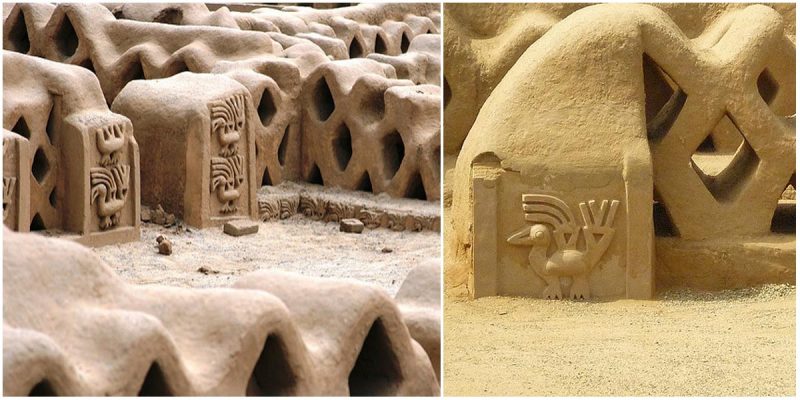Built around 1300 AD, Chan Chan is the largest city of the pre-Columbian era in South America. It was the capital of the Chimú Kingdom and today is one of the biggest archaeological sites located in La Libertad Region, 5 kilometers west of Trujillo, Peru.
Chan Chan means “Sun Sun”, named for its sunny climate which cooled year round by a southerly breeze. Unlike most coastal ruins in Peru, Chan Chan is very close to the Pacific Ocean.
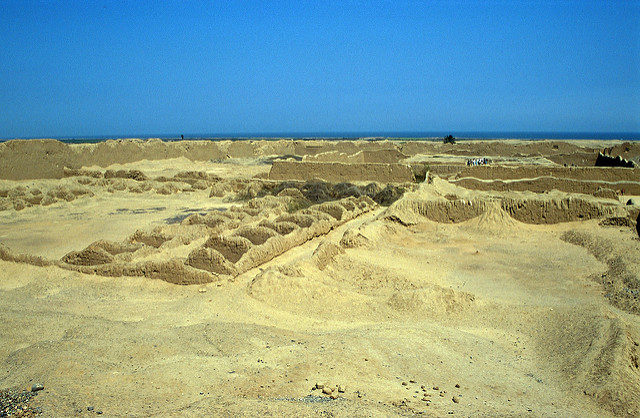
The city had large architectural masterpieces called ciudadelas which housed plazas, storerooms, and burial platforms for the royalty. The ciudadelas were built for the royal class while the housing for the lower classes of Chan Chan’s hierarchical society is known as small, irregular rooms.
Supposedly, the 10 royal palaces constructed over the centuries were done by the working class.
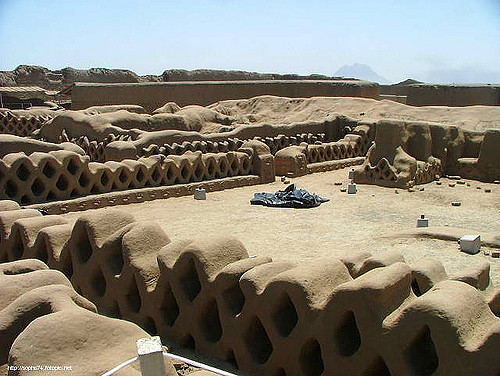
Chan Chan fell into decline after the Inca conquered the Chimú around 1470 AD. Francisco Pizzaro founded Trujillo in 1535 AD which pushed Chan Chan further into the shadows. The city was looted by the Spaniards and an indication of its great wealth can be seen in a 16th-century list of items looted from a burial tomb.
Nearly 80,000 pesos of gold were recovered which is near $5, 000,000 Us dollars in gold. Today, the excavation of the city continues under the Peruvian Instituto Nacional de Cultura.
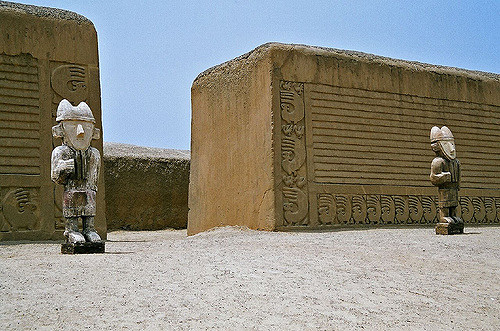
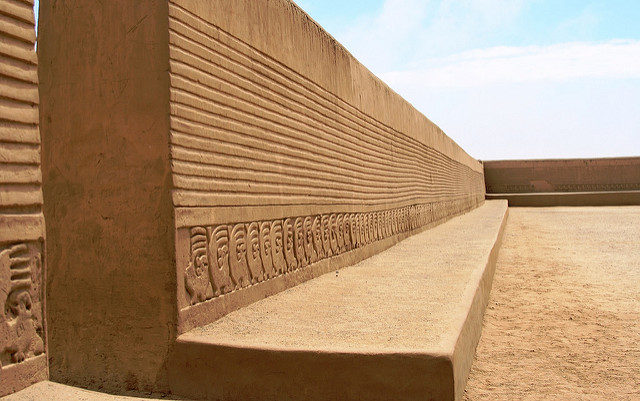
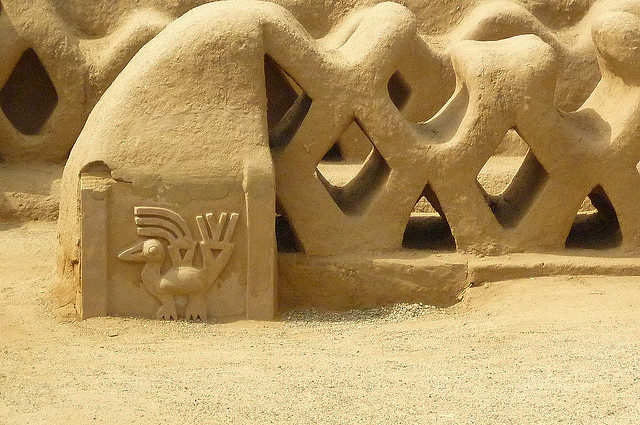
The structure of Chan Chan is triangular, surrounded by 50-foot walls. There are no enclosures opening north for the walls which are facing that direction, have the greatest sun exposure.The walls are adobe brick covered with a smooth surface into which geometric designs are carved.
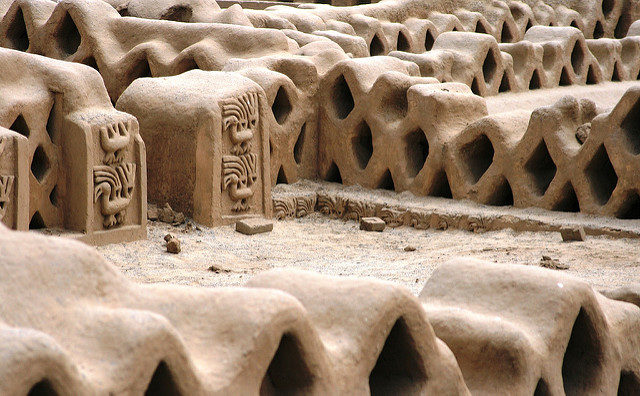
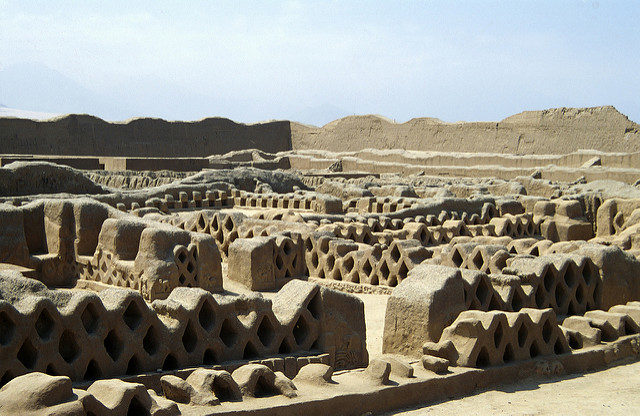
About 500 m before Chan Chan, there is a museum filled with exhibits that explain Chan Chan and the Chimú culture. There are a lot of photos and maps that show the wide extension of the city.
Chan Chan was designated by UNESCO as a World Heritage Site on 28th November 1986. The “Master Plan for Conservation and Management of the Chan Chan Archaeological Complex” was drawn by the Freedom National Culture Institute of Peru in 1998 and approved by the Peruvian Government.
